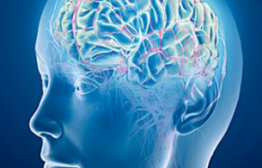As a Loyola student, you have the opportunity to work alongside our talented professors to partner in collaborative research. Learn more about some recent research and projects currently underway.
Mental Health Risk and Resilience in Service Members Deployed to Combat Zones
Kate Yurgil, Assistant Professor of Psychology, pursues multidisciplinary research that integrates measures of human behavior, cognition, and neurophysiology. Her most recent work, to be funded through a Department of Defense Congressionally Directed Medical Research (CDMR) Program Neurosensory and Rehabilitation Research Award, focuses on tinnitus (i.e. ringing of the ears) and hearing loss in relation to blast injuries, which have been deemed the signature wounds of the recent wars in Iraq and Afghanistan. An estimated 12-23% of returning service members attest to a traumatic brain injury, and among those exposed to explosions, up to 77% sustain permanent hearing loss and 60-75% report tinnitus. Dr. Yurgil will collaborate with Dr. Dewleen Baker, Research Director at Veterans Affairs Center of Excellence for Stress and Mental Health in San Diego, CA and Professor of Psychiatry at University of California San Diego, the PI, who directs multiple research programs on post-traumatic stress disorder and traumatic brain injury. Drs. Yurgil and Baker, together with a team of physicians, scientists, and clinicians, integrate biological, physiological, psycho-social, and neuroimaging techniques to investigate predictors of mental health risk and resilience in service members deployed to combat zones.
Behavioral Neuroendocrinology Research
Dr. Grissom's research focuses on understanding sex differences in stress and anxiety across the lifespan, and how these differences impact learning and memory. Elevations in stress hormones at different critical developmental timepoints impact learning and memory in males and females differently. Increased anxiety resulting from stress exposure impacts learning style in a sex-specific manner as well. Dr. Grissom's current work uses rodent models to examine how elevations in stress hormones at different critical developmental periods impact measures of anxiety, and how this, in turn, alters learning and memory in males and females via changes in cell structure and function in related brain areas.
Social and Biological Influences on Primate Behavior and Reproduction
Dr. Evan Zucker, Professor of Psychology, studies the social and biological influences on the behavior and reproductive outcomes of nonhuman primates, as well as studying naturally-occurring patterns of human behavior (human ethology) and other aspects of social phenomena. His recent research has focused on the relationship between familial social status and life-history variables, as well as how indices of health in black howling monkeys are related to ecological factors, group composition factors, and reproductive status.
Virtual Reality Research
Dr. Dupuis conducts research examining the effects of gaming and virtual reality on social behaviors including interpersonal violence and attitudes toward women. Her students have used virtual reality to examine concepts such as street harassment, sexism, embodiment, and aggression.
Making a better world: A project examining motivation to improve collective well-being
Dr. Chuck Nichols' project seeks to better understand the correlates, causes, and effects of wanting and working toward collective betterment. Caring about and helping close others and even complete strangers can provide strong psychological benefits for the helper as well as the helped. However, some surveys suggest that individuals may be becoming more selfish and less other-focused in recent decades, potentially undermining overall well-being. This project employs survey and experimental methodology to explore what leads people to care about and act to help others.




